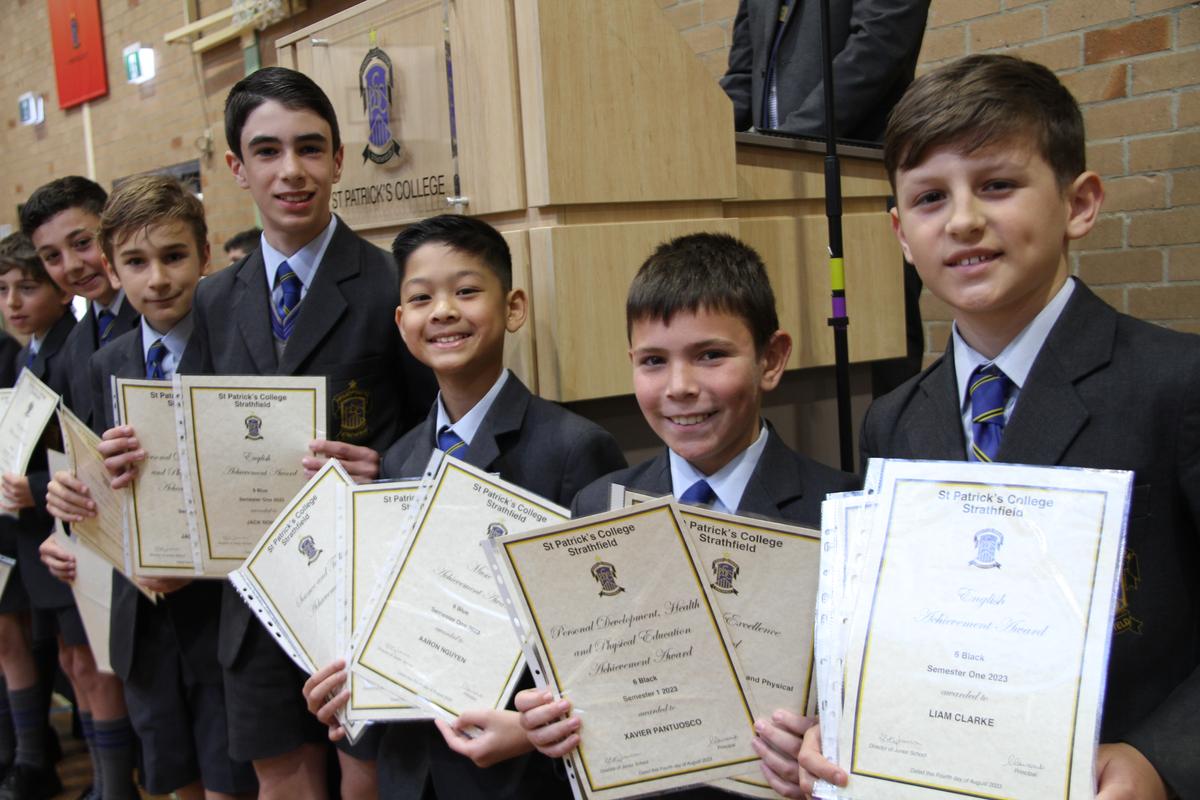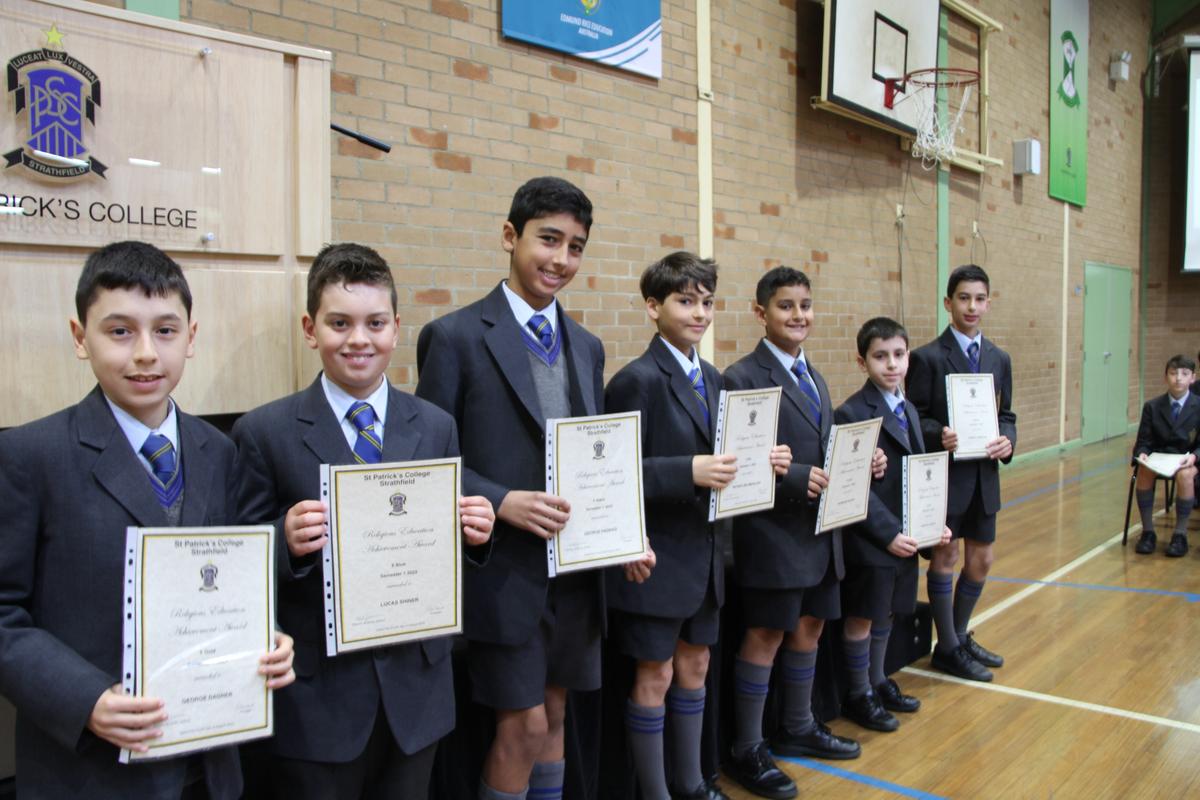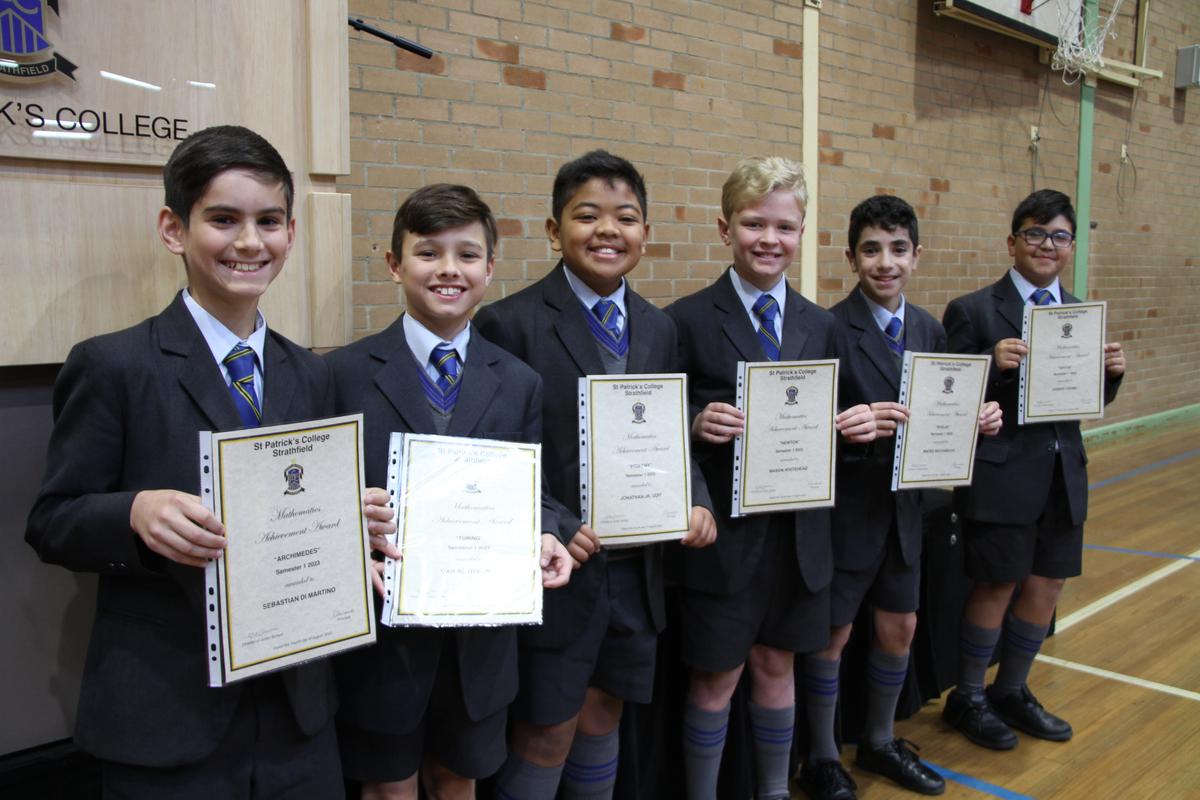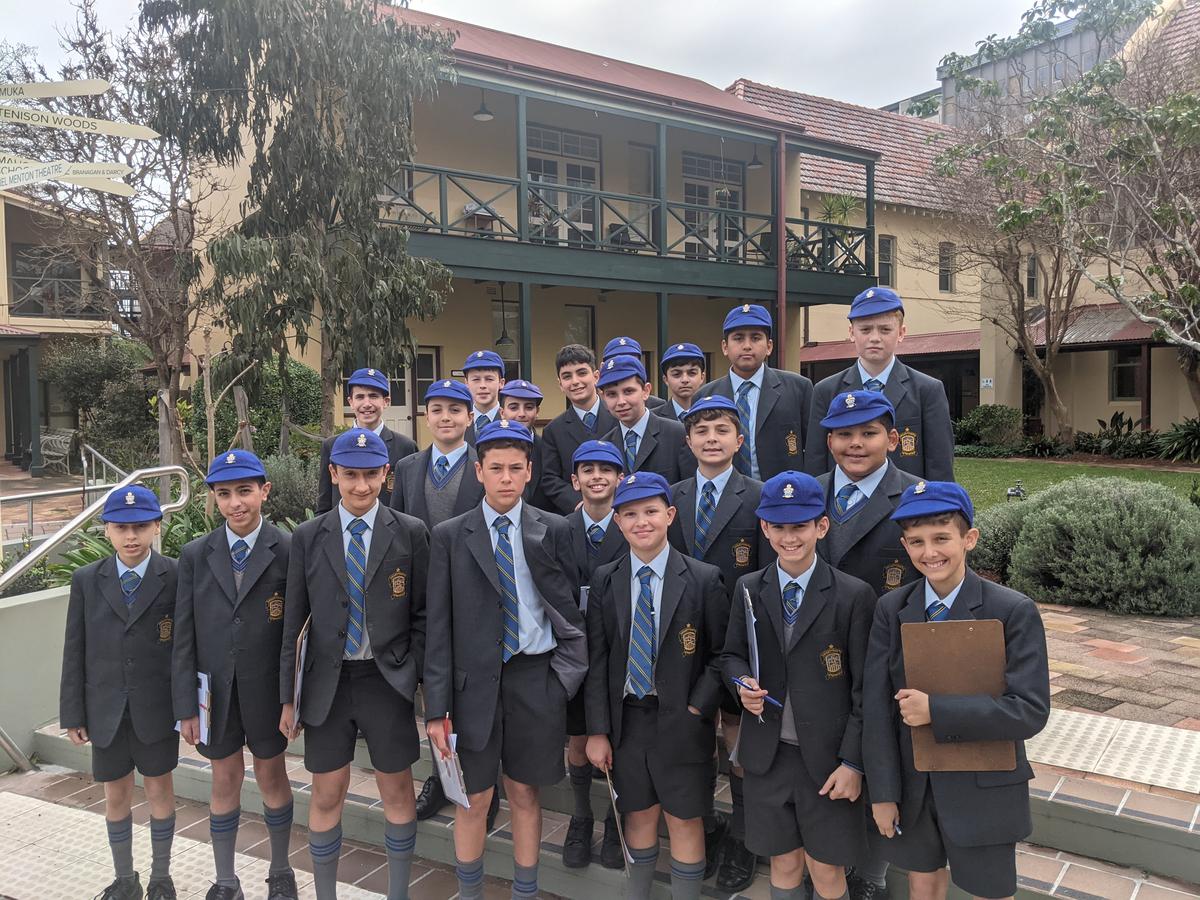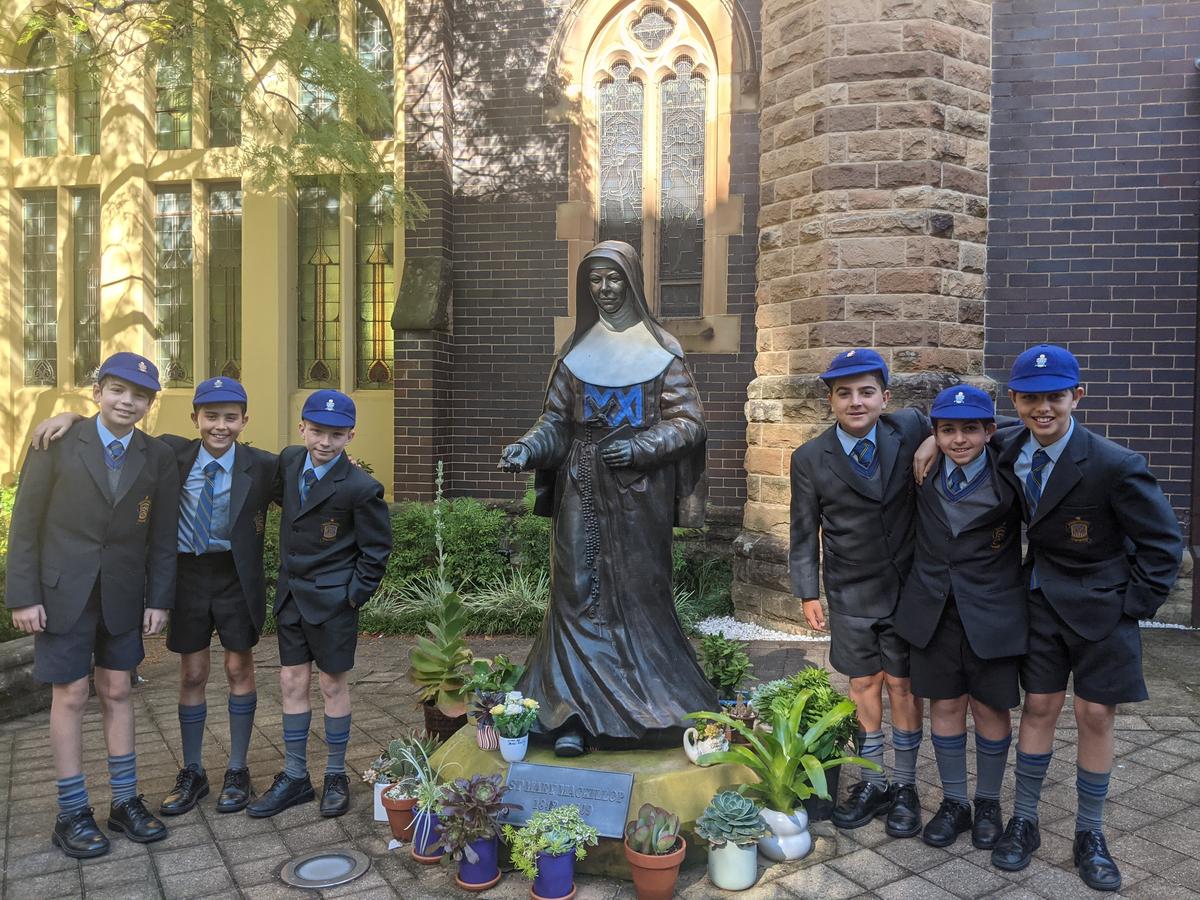Junior School

Students as Change Agents
A significant focus that underpins much of what we do in the Junior School is to explore how our boys can have a positive influence on the world around them. In other words, how they can be ‘change’ agents.
Kathy Caprino is a career and leadership coach and senior contributor for Forbes magazine who suggests nine ‘core behaviours’ of people who make a difference for the benefit of others and positively impact the world around them.
While Caprino primarily works with adult leaders, the nine behaviours listed below are easily applied to the context of students’ own learning experiences at school:
1. Use what they’ve learnt to be of service to others
2. Always look for things to learn next
3. Build positive relationships with others
4. Look for things that could change and be better
5. Accept feedback because they want to improve
6. Share and teach what they’ve learnt
7. Believe in lifelong learning
8. Inspire and uplift others
9. Make decisions with compassion and care.
We encourage all Junior School parents/carers to reflect with their son on how he is demonstrating these nine behaviours, both at school and also in his everyday life.
Supporting Student Reading
With National Book Week quickly approaching us, it is only timely to reinforce how parents/carers can continue to help and support their son with reading at home. Some suggestions on how to assist his reading and comprehension skills are:
- Ask questions – Encourage your son to ask questions while reading and discuss the story together. Ask questions about the characters, plot, setting, and his opinions on the events in the book. This promotes critical thinking and engagement with the material. You can also ask him question prompts that promote student thinking within, about and beyond the text.
- Predict and summarise – Prompt your son to make predictions about what might happen next in the story. After reading, ask him to summarise the main events or key points. This also reinforces his understanding of the text overall.
- Visualise the story – Help your son to visualise the scenes in the book. Encourage him to create mental images of the characters, settings, and events. Visualisation also enhances comprehension and makes the reading experience more vivid.
- Relate to personal experiences – Connect the story to your son's own experiences or other books he has read. This also helps him to make more meaningful connections and relate to the characters' own emotions or actions.
- Discuss vocabulary – When encountering new or challenging words, discuss their meaning with your son. Ask him to consider what other words have a similar meaning. Then encourage him to use the new vocabulary in his writing when applicable. Understanding vocabulary in context also improves overall comprehension.
- Continue to read aloud together – Reading aloud together allows you to model effective reading strategies and engage in discussions about the text as you go along. Reading aloud also supports reading fluency which contributes to comprehension. Practise reading fluency with your son and encourage him to read with expression and intonation.
- Explore different genres – Introduce your son to various genres that he may not necessarily be familiar with such as non-fiction, poetry, and fantasy. This also broadens his understanding of different writing styles and story structures.
By implementing these strategies, parents/carers can create a supportive environment that enhances your son's reading comprehension skills and helps to foster a love of reading. Above all else, remember to be patient, encouraging, and celebrate his progress along the way!
If you have any queries or concerns, please do not hesitate to contact me via email (glenn.stephenson@spc.nsw.edu.au) or phone (8705 9247) and I will endeavour to assist you in any way that I can.
May God bless you,
Glenn Stephenson
Director of Junior School
Semester 1 Academic Awards Assembly
On Friday 4 August the Junior School and invited families gathered for the Semester 1 Academic Awards Assembly to celebrate the dedication and achievements of our students. We congratulate all of the award recipients for their hard work and commitment to learning. Keep striving for excellence and best wishes in your work across all subject areas this semester.
Dan Fields
Junior School - Head of Curriculum
Da Vinci Decathlon
Since my last communication about our successful outing at the Da Vinci Decathlon, more results have been released. It is with immense pride that I share the following outstanding results with you. The Year 5 team placed in the top 16 in 5 of the 10 disciplines including:
- 6th in Science
- 7th in Legacy
- 7th in Code Breaking
- 10th in Cartography and
- 12th in Ideation.
This performance earned the Year 5 team an impressive 11th place overall in the Year 5 competition.
In addition to the Year 6 team’s incredible efforts to secure 3rd place in Science, they also achieved 16th place in Cartography. Having witnessed the calibre of teams present on the day, I can attest to the fact that these results were not easy to come by and are something we should all be extremely proud of. Well done boys!
ICAS Dates
Please take note of the time/date for each assessment.
- English Year 5 and 6: Monday 14 August 8:00 AM.
- Science Year 5 and 6: Tuesday 22 August 8:00 AM.
- Mathematics Year 5 and 6: Tuesday 29 August 8:00 AM.
Students are to meet in the Powell Pavillion at 7:50 AM to ensure we begin the assessments at 8:00 AM sharp. Please make sure your son knows he is participating in this competition so that he can keep an eye out for announcements at school.
Sarah Tatola
Junior School Learning Support and Enrichment Coordinator
Year 6 Excursion to Mary MacKillop Place
Last week, all Year 6 classes travelled to North Sydney to visit Mary MacKillop Place. After battling through the peak hour traffic, we had an opportunity to take in the calm and serenity of the site, set in the heart of North Sydney CBD. The various galleries, set within the grounds of the previous ‘Poor School’, give an insight into the time when Mary lived, the challenges she had to overcome and especially the legacy that she began. The cottage that St Mary lived in also still stands and is a window into life at the time.
The Mary Mackillop place was fun in many ways, knowing that Mary Mackillop had lived in the cottage that we were walking in definitely surprised me. We could see all the replicas of the items that they would've used back then. Collecting information in Gallery 1 and 3 was fun having to search all around the room for information to answer the questions. After all this was a really fun experience to do. (Lachlan)
On our excursion to Mary MacKillop place, we experienced lots of exciting and interesting things like answering the questions about Mary Mackillop in our groups and exploring old items in the house that Mary Mackillop passed away in. One of the last exciting activities that we did to conclude our visit to Mary Mackillop place was that we kneeled and prayed next to Mary Mackillop's marble grave in the chapel. (Jacob)
If you are looking for a family outing or holiday excursion it is highly recommended. A great way to get to know Australia’s first saint.
Stephen Cooper
Junior School Religious Education Coordinator

